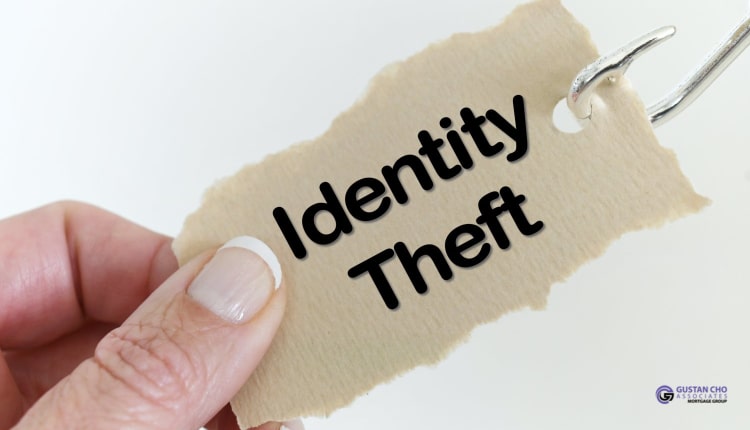Identity Theft During FHA Loan Process Will Delay Home Closing
This Article Is About Identity Theft During FHA Loan Process Will Delay Home Closing
Homebuyers can still qualify for a mortgage loan if they are victims of identity theft. Since the credit report is not accurate, the only way borrowers can get approved for a home loan is with a manual underwriting. FHA and VA are the two loan programs that offer manual underwriting. Not Fannie Mae and Freddie Mac. In this article, we will cover qualifying for mortgage and identity theft during the FHA Loan Process and how borrowers can still close on their home loan while being victims of identity theft. In this article, we will discuss and cover becoming a victim of identity theft prior to and during the mortgage process.
Identity Theft
Identity theft is one of the fastest-growing crimes in the United States. Recent statistics prove that over 45,000 consumers become victims of identity theft in the U.S. and that number is expected to escalate. Identity theft is classified as a felony and is categorized as fraud.
Click here to get a home loan with low credit scores
Here are ways of falling victim to identity theft
- Losing wallet
- Losing credit cards
- Getting their computer hacked
- Getting mail stolen
Predators of identity theft get their victims personal information such as the following:
- Full name and address
- Social security number and date of birth
- drivers license number
Predators of identity theft will use their victim’s private information to apply for new credit such as credit cards, installment loans, utility accounts, cell phone accounts, and loans of all types. Many victims of identity theft do not realize that they are victims until months later and after serious damage has been done to their credit.
Understanding Identity Theft
It occurs when someone unlawfully uses another person’s personal information, such as Social Security numbers or financial details, to commit fraud. It can severely impact an individual’s financial stability and creditworthiness, leading to significant complications during important financial transactions, including the FHA loan process.
What is the Effect of Identity Theft During FHA Loan Process?
When applying for an FHA loan, lenders scrutinize your financial history, credit report, and personal information to determine your eligibility. Identity theft can introduce inaccuracies in your credit report, unauthorized debts, and other financial discrepancies. These issues can complicate or delay loan approval and the home closing.
Signs of Identity Theft During FHA Loan Process
Be vigilant for signs of identity theft during FHA loan process, these includes the following:
- Unfamiliar accounts or credit inquiries on your credit report.
- Unexpected denials of credit.
- Bills or collection letters for accounts you didn’t authorize.
- Missing mail, particularly related to financial accounts.
- Errors in your personal information on your credit report.
Actions to Take if You notice Identity Theft During FHA Loan Process
If you suspect identity theft during the FHA loan process, take immediate action to mitigate the damage and avoid delays:
- Report the Fraud: Contact the Federal Trade Commission (FTC) and file a report at IdentityTheft.gov.
- Place a Fraud Alert: Notify one of the major credit bureaus (Equifax, Experian, or TransUnion) to place a fraud alert on your credit report.
- Review Your Credit Reports: Obtain and carefully review your credit reports for any inaccuracies or unauthorized activity.
- Contact Your Lender: Advise your lender about the suspected identity theft and provide them with any relevant documentation.
Protecting Yourself from Identity Theft During FHA Loan Process
To secure yourself from identity theft and ensure a smoother FHA loan process:
- Frequently review your credit reports for any unapproved transactions.
- Use secure, unique passwords for your financial accounts and change them periodically.
- Be cautious about giving personal information online or over the phone.
- Shred sensitive documents before disposing of them.
- Enable two-factor authentication for your financial accounts when possible.
The Role of the Lender
Lenders play a crucial role in addressing identity theft. They help identify and resolve discrepancies in your credit report, work with credit bureaus to correct errors, and ensure that your financial profile is accurately represented before proceeding with the loan approval and closing process. Click here to find the lender for your mortgage
Resources for Identity Theft Victims
Several resources are available to help victims of identity theft:
- Federal Trade Commission (FTC): Provides information and assistance dealing with identity theft.
- IdentityTheft.gov: Offers personalized recovery plans and step-by-step guidance.
- Credit Bureaus: Offer services such as fraud alerts, credit freezes, and assistance correcting credit report errors.
Can Identity Theft Insurance Help?
Identity theft insurance can provide financial assistance and resources for recovery if you fall victim to identity theft. It can cover costs related to restoring your identity, such as legal fees, lost wages, and expenses for mailing documents. This can alleviate some burdens and speed up the resolution process during the FHA loan process.
Avoiding Identity Theft During FHA Loan Process
Below are tips in avoiding becoming a victim of identity theft:
- Shred all documents and paperwork that contain personal information
- Review credit report
- Make sure that the information on the credit report is correct
- Shred credit and loan applications, monthly billing statements, and other documents containing personal information
- Make sure that the mailbox is secure with a lock
- If a determination letter of credit is not received timely, contact the creditor
- Make sure that important documents like tax returns and W2s are received timely
- If it is not received in a timely manner, contact the sender
- Make sure that all monthly bills arrive every month. If any statements are missing, contact the issuer or sender
- Be cautious giving out personal information like social security card and date of birth
- Make sure that bank statements, tax returns, ATM and credit card receipts are stored in a secured place or shredded
- If purse or wallet is missing and/or stolen, contact issuers of credit and file a police report
Contact credit bureaus as well and request to place a fraud alert on file.
Victims Of Identity Theft During FHA Loan Process
Unfortunately, victims of identity theft during the FHA Loan process will encounter delays in their home closing. Once a borrower becomes a victim, it will automatically halt the mortgage process until the issue has been resolved. Victims of identity theft need to get their mortgage loans downgraded to a manual underwrite. Once the borrower has been classified as an identity theft victim and the file has been downgraded to a manual underwrite, the underwriter will need letters of explanation and documentation for every credit tradeline.
The underwriter will review the following:
- Overall payment history prior to the borrower becoming a crime victim
- Manually evaluate borrower’s income, debt, and asset
- Review non-traditional credit trade lines and payment history
Make sure not to hesitate to file a police report the minute you discover that you were a victim of identity theft. Click here to start to FHA loan Process
Frequently Asked Questions (FAQs)
- What is identity theft, and what impact can it have on the FHA loan process?
It occurs when someone unlawfully uses another person’s personal information, such as Social Security numbers or financial details, to commit fraud. During the FHA loan process, identity theft can lead to inaccuracies in credit reports, unauthorized debts, and other financial discrepancies that can complicate or delay loan approval and closing. - How can identity theft delay my home closing?
Lenders must investigate and resolve discrepancies in the applicant’s credit report when identity theft is discovered. This process includes verifying the legitimacy of debts, correcting credit report errors, and ensuring the applicant’s financial standing is accurately represented. These steps can extend the loan processing time, leading to delays in closing. - What are the signs of identity theft during FHA loan process?
Common signs of identity theft include:
– Unfamiliar accounts or credit inquiries on your credit report.
– Unexpected denials of credit.
– Bills or collection letters for accounts you didn’t authorize.
– Missing mail, particularly related to financial accounts.
– Errors in your personal information on your credit report. - What should I do if I suspect identity theft during FHA loan process?
If you notice identity theft, take the following steps:
Report the fraud: Contact the Federal Trade Commission (FTC) and file a report at IdentityTheft.gov.
Place a fraud alert: Notify one of the major credit bureaus (Equifax, Experian, or TransUnion) to place a fraud alert on your credit report.
Review your credit reports: Obtain and carefully review your credit reports for any inaccuracies or unauthorized activity.
Contact your lender: Advise your lender about the suspected identity theft and provide them with any relevant documentation. - How can I secure myself from identity theft during FHA loan process?
To protect yourself from identity theft:
Frequently check your credit reports for any unauthorized activity.
Use strong, unique credentials for your financial accounts and change them periodically.
Be cautious about giving personal information online or over the phone.
Shred sensitive documents before disposing of them.
Enable two-factor authentication for your financial accounts when possible. - Can identity theft be resolved quickly enough to prevent delays in closing?
The duration of resolving identity theft depends on the fraud’s complexity and the responsiveness of the involved parties. Some cases are resolved quickly, while others may take weeks or months. To speed up the process, it’s essential to act swiftly and collaborate closely with your lender and credit bureaus. - Will identity theft affect my ability to get an FHA loan?
While identity theft can complicate the FHA loan process, it doesn’t necessarily prevent you from getting a loan. Once the issues are resolved and your credit report is corrected, you can proceed with your loan application. Lenders typically work with you to address the situation and help you move forward. - Are there any resources available to help victims of identity theft during FHA loan process?
Yes, several resources are available to help victims of identity theft:
Federal Trade Commission (FTC): Provides information and assistance dealing with identity theft.
IdentityTheft.gov: Offers personalized recovery plans and step-by-step guidance.
Credit bureaus: Offer services such as fraud alerts, credit freezes, and assistance correcting credit report errors. - What role does the lender play in cases of identity theft during FHA loan process?
The lender plays a crucial role in addressing identity theft. They will help identify and resolve discrepancies in your credit report, work with credit bureaus to correct errors, and ensure that your financial profile is accurately represented before proceeding with the loan approval and closing process. - Can identity theft insurance help in the FHA loan process?
Identity theft insurance can provide financial assistance and resources for recovery if you fall victim to identity theft. It can cover costs related to restoring your identity, such as legal fees, lost wages, and expenses for mailing documents. This can alleviate some burdens and speed up the resolution process during the FHA loan process.
If you need help with identity theft during FHA loan process, feel free to contact GCA Mortgage Group by calling us at at 800-900-8569 or text us for a faster response. You can also email us at alex@gustancho.com. Our expert Loan Officers are available even during weekends and holidays!
Talk to a Loan Officer. Click here!








